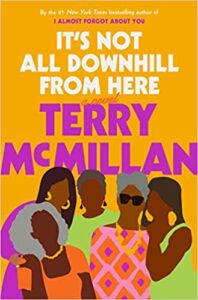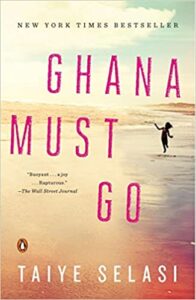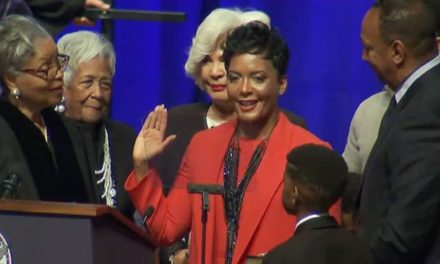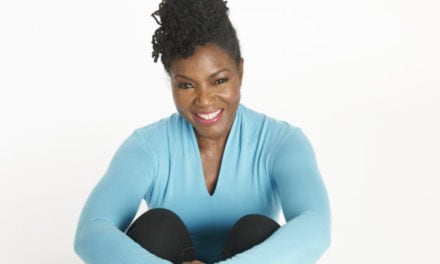By Greer Jackson
Now more than ever, it’s so important to look after ourselves and turn to activities that replenish us, inspire us, bring us joy and give us hope, such as reading good books.
It can be easy to fall into a rut with so much of our time being spent in the confines of our homes, behind screens and, in some cases, separated from the people we love. In fact, stress, anxiety and uncertainty are at an all-time high, because of COVID-19.
In a study conducted by the CDC, over 40.9% of respondents reported at least one adverse mental health or behavioral health condition as a result of the pandemic. Additionally, months of unrest and protests surrounding racial violence and a polarizing election have created even more tension in our lives.
While reading books is by no means a replacement for professional mental health therapy, it can both reduce stress and alleviate symptoms of depression, according to Healthline. A good book can transport you to the place and time in which its characters are situated.
Here are five titles, old and new, by Black women, to curl up with when the weight of our new normal becomes a little too heavy.
1. It’s Not All Downhill from Here by Terry McMillan
“Nobody should have to hide who they are inside to please people on the outside.”
 Bestselling author Terry McMillan, who brought us Waiting to Exhale and How Stella Got Her Groove Back, gives a realistic view of the trials and triumphs of Black womanhood. The book follows Loretha Curry, a 68-year-old woman with a family and successful beauty product business, whose friends help her through a trying time of loss. Filled with both moments of love and laughter, this book deals with themes of aging, mental illness and friendship.
Bestselling author Terry McMillan, who brought us Waiting to Exhale and How Stella Got Her Groove Back, gives a realistic view of the trials and triumphs of Black womanhood. The book follows Loretha Curry, a 68-year-old woman with a family and successful beauty product business, whose friends help her through a trying time of loss. Filled with both moments of love and laughter, this book deals with themes of aging, mental illness and friendship.
2. Red at the Bone by Jacqueline Woodson
“Something about memory. It takes you back to where you were and lets you be there for a time.”
Set during different time periods between 1920s Tulsa and 2001 Brooklyn, this multigenerational saga begins with a coming-of-age ceremony for 16-year-old Melody, a rite of passage that her mother never had. It traces decisions that Melody’s parents and grandparents made and the challenges they faced, dealing with race, class, identity and sexuality over four generations. It’s a relatively short read, but Woodson’s use of flashbacks shows readers the history and experiences of each character.
3. Ghana Must Go by Taiye Selasi
“Loss is a notion. Not more than a thought. Which one forms or doesn’t. With words. Such that one cannot lose, nor ever say he has lost, what he does not permit to exist.’
 In Ghana Must Go, Selasi tells the story of an African family’s transformation: its beginnings, its cracks along the fault lines of love, growth and change, and its repair after grief and loss. It is poetry turned prose, told through the voice of each character: prestigious Doctor Kweku Sai, his wife, Folasade Savage, and their children: Olu, twins Taiwo and Kehinde, and Baby Sade. It spans a number of years through flashbacks, and is set in Ghana, Nigeria, Boston, New York, London and Connecticut.
In Ghana Must Go, Selasi tells the story of an African family’s transformation: its beginnings, its cracks along the fault lines of love, growth and change, and its repair after grief and loss. It is poetry turned prose, told through the voice of each character: prestigious Doctor Kweku Sai, his wife, Folasade Savage, and their children: Olu, twins Taiwo and Kehinde, and Baby Sade. It spans a number of years through flashbacks, and is set in Ghana, Nigeria, Boston, New York, London and Connecticut.
4. Zikora by Chimamanda Ngozi Adichie
“I read somewhere that love was about this – the nuggets of knowledge about our beloved that we so fluently hold.”
Zikora, a 39-year-old Nigerian lawyer in Washington D.C., finds herself wrapped up in what seems to be the perfect love — until it isn’t. When the prospect of becoming a single mother becomes very real, Zikora comes face to face with the realities of sexism and patriarchy. She finds strength in herself and those closest to her like her mother, whose need for perfection and reputation sometimes seems to overshadow her love for her daughter. Adichie draws readers in with her very raw writing style so that nothing gets lost in translation.
5. The Secret Women by Sheila Williams
“Love did not mean you didn’t have to apologize—just the opposite. Love meant having to say you were sorry over and over again.”
When Elise Armstrong, Carmen Bradshaw and DeeDee Davis meet at a weekly yoga class, they never imagined sharing similar realities. Each woman is dealing with the loss of her mother. Although they are at different points in their lives, the women quickly become friends after agreeing to help each other sort through their mothers’ belongings — old letters, diaries and other memorabilia that teach them things about their mothers that they never knew. Williams shows us the parallels and contrasts in each mother-daughter relationship, as the story is told from different perspectives. This book illustrates the beauty of female friendships as vessels for everything from advice and endless laughter to support during difficult times.








